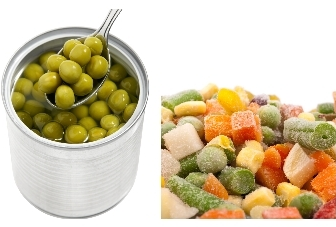Vegetable freezers and canners in Europe are warning that the situation is critical for this year’s spring-sown, summer-harvested crops. The alert was issued by the Brussels-based European Association of Fruit and Vegetable Processing Industries (PROFEL) trade association on August 17, one month after announcing concerns over drought-related crop shortages. The conclusion is that supply levels for the 2015 pack have worsened significantly.
The intensity of the drought increased in July, with some regions getting only 5% of average rainfall for the first two weeks of the month. A deficit of around 60% of early summer rainfall has been recorded in a number of the sector’s main vegetable production areas, while temperatures have remained higher than normal.
 Light spring rains in April and May, followed by the prolonged dry period in June and July, have caused irreversible damage to the majority of spring planted crops. Problems have been exacerbated by high temperatures and strong winds, which combined to increase evaporation rates, leading to reduced yields and crop shortages in the north, west and since the end of July also in the east of Europe, for virtually all vegetable varieties grown for processing.
Light spring rains in April and May, followed by the prolonged dry period in June and July, have caused irreversible damage to the majority of spring planted crops. Problems have been exacerbated by high temperatures and strong winds, which combined to increase evaporation rates, leading to reduced yields and crop shortages in the north, west and since the end of July also in the east of Europe, for virtually all vegetable varieties grown for processing.
Concerns voiced in early July over potential shortages of up to 20% for a number of crops have now become a reality. Major problems are reported for peas and broad beans, for which this year’s harvest is virtually finished and green beans/flageolets, for which the harvest is already at its halfway point in Eastern Europe, where there is a shortfall of between 40% and 50%. Baby carrot yields are also down significantly.
Furthermore, according to PROFEL, even if rain falls in the second half of August, the later harvested crops such as cauliflower, broccoli and sweet corn, will not recover from the damage already caused.
PROFEL represents over 500 companies that last year produced approximately 3.1 million tons of frozen vegetables, 2 million tons of canned vegetables, 1 million tons of canned fruit and compotes, 400,000 tons of fruit preserves, and 35,000 tons of dried vegetables.





